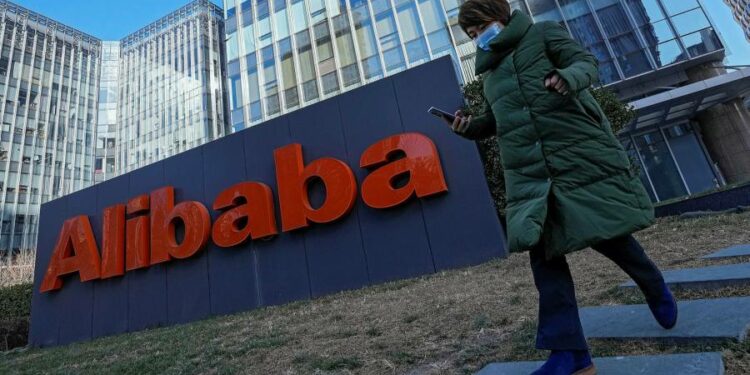Alibaba has warned that China’s Covid-19 lockdowns have hit its business, even after the ecommerce giant reported that sales growth in the first quarter had outstripped local rivals such as Tencent and Baidu.
Chief executive Daniel Zhang said the lockdowns had snarled Alibaba’s logistics and supply chains and hit consumer demand for non-essentials, causing the company’s revenue to shrink by a low single-digit percentage in April compared with a year earlier, noting the situation had improved in May.
“We believe operating stability and sustainability during this period is the primary concern of all businesses,” said Zhang.
Alibaba’s results come a day after Chinese premier Li Keqiang issued a stark warning on the country’s economic turmoil to tens of thousands of officials during an internal videocast, pleading with them to take action to restart an economy paralysed by Covid lockdowns.
For the three months to the end of March, Alibaba’s revenue rose 9 per cent year on year to Rmb204bn ($30bn), beating analysts’ expectations.
The growth came in ahead of rivals such as social media group Tencent and search company Baidu, whose sales both rose less than 1 per cent during the period, but behind ecommerce group Jd.com’s 18 per cent uptick.
Alibaba has shed about $620bn in market value since Chinese authorities cancelled the initial public offering of its fintech arm Ant Group in November 2020, which kicked off a wide-ranging campaign to rein in the country’s tech giants.
Alibaba’s New York shares now trade below the closing price of its first trading day in 2014. Its US shares were up more than 10 per cent in early trading.
Robin Zhu of Bernstein attributed the share price rise to Alibaba’s better than expected first quarter results and guidance for the second quarter being “less bad than feared.”
Adding to the company’s challenges is tougher competition from traditional ecommerce groups such as Pinduoduo and JD.com and newcomers such as ByteDance’s Douyin, TikTok’s sister app in China, which has boomed on the back of influencers hawking goods in livestreams.
Alibaba has also pushed livestreaming sales but its most popular influencer Viya, a social media star who sold 31bn of goods in 2020, disappeared from the airwaves in December after local tax authorities fined her for under-reporting her income.
China’s proliferating ecommerce platforms have weighed on Alibaba’s cash cows Taobao and Tmall, with revenue in the segment that captures their earnings flat from the previous year.
Overall, Alibaba reported a net loss of Rmb16bn in the first quarter, primarily because of the falling market prices of listed investments. Operating income rose to Rmb17bn.
New chief financial officer Toby Xu stressed that the company would work to control costs in the coming year, but declined to give a full-year revenue forecast, citing the pandemic uncertainties.
“The parts of the business that aren’t generating long-term value we will find ways to make them more efficient or scale them down,” he said.
Alibaba in March increased its share buyback plan to $25bn over the coming two years. The company repurchased $2bn of stock as part of the programme in the first quarter.











